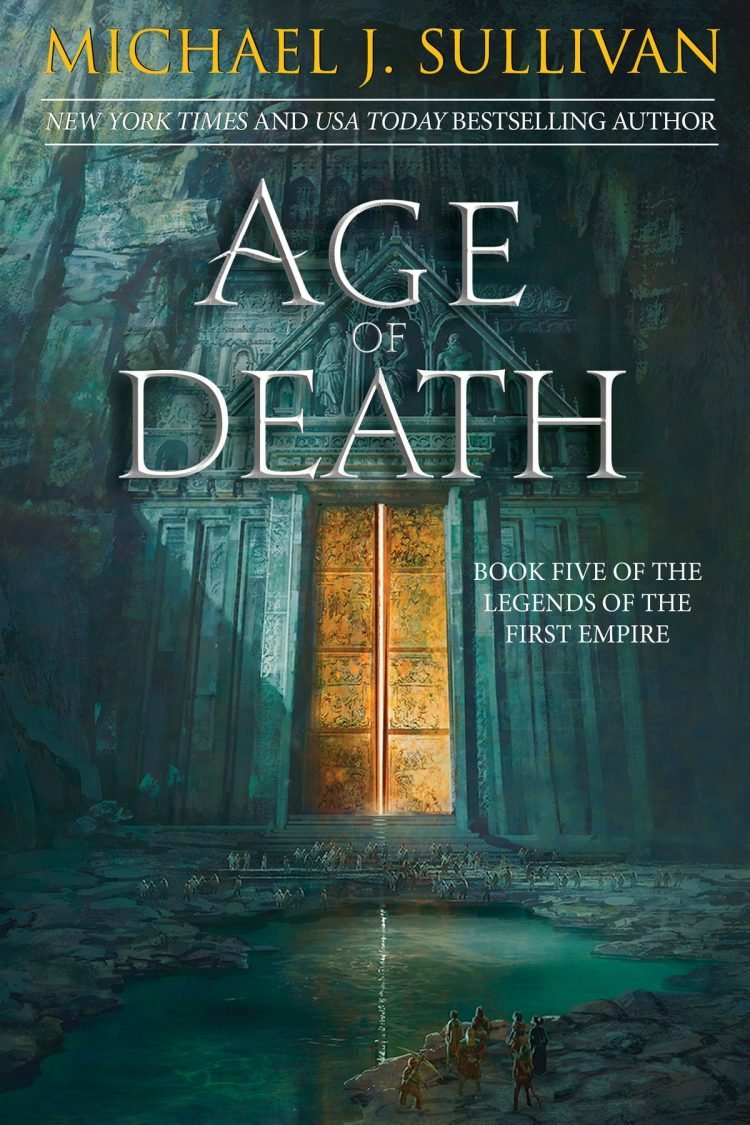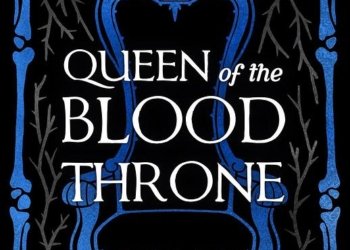No products in the cart.
Age of Death by Michael J Sullivan (Legends of the First Empire #5)
Within the opening few pages of Michael J. Sullivan’s 2018 Age of War, we learned that “The Legends of the First Empire” trilogy would be expanded to six books – “two closely related trilogies under a single banner.” (Age of War, page xii). The Riyria Revelations, Sullivan’s first and most well-known series, carries a lot of weight in terms of this mythology. For Sullivan, he had simply not told the full story he had intended, and he discovered he had written three additional novels which would further bridge the events of the first three books with the actual formation of the First Empire.
Age of Legend, the first book of a new trilogy that built on The Legends plot and its magnificent characters, was released in 2019. In my assessment, I called attention to what I considered to be “stretch marks” brought on by the series’ expansion from three to six books. I thought the book missed some of the complexity and depth that are typically present in Sullivan’s works, and that its length did not correspond to the volume’s size given how much backstory it had.
Similar to this, I usually have a hard time getting into Sullivan’s prose, which is by no means tough or subpar but is nevertheless “lower” than that of certain epic fantasy writers. It’s critical, in my opinion, to consider where we’ve come from when analysing book five of any fantasy series in order to determine whether the author has made progress and shown concern, or if they are merely riding the success and acclaim of earlier books.
I was forced to reevaluate my previous perceptions of my experience reading The Legends of the First Empire series when I read Michael J. Sullivan’s Age of Death, which was released in early 2020 (and quickly followed by the concluding Age of Empyre). This required further reevaluating as I reread “The Riyria Revelations.” There was little indication of the stretch marks I had anticipated in Age of Legend, despite the fact that Sullivan does prioritise certain backmatter, such as lengthy Afterwords by the author and his wife as well as his primary agent and editor, Robin, and a list of all his Patreon donors.
Additionally, if you happen to reread “The Riyria Revelations” before writing the review for Age of Death, you’ll find that Sullivan never placed a lot of emphasis on a book’s length rather than telling the story in the length necessary to do so. This is particularly clear in the final two Riyria Revelations books, Wintertide and Percepliquis (collected in Heir of Novron).
In Age of Legend, there was evidence of some surface-level storytelling at times, so I’m not quite ready to completely drop my worry about stretch marks. However, with Age of Death, there is no such evidence, no wrinkles, stretching, or thin storytelling. Instead, we are given the chance to see an incredibly moving story about love, self-worth, and sacrifice.
More than ever, we have the chance to dig into the heartless souls of people like Brin, Moya, Roan, and Gifford. The freedom Sullivan gives himself to finally unveil the full depths of character behind each of his creations depends on their prior histories and behaviours, both those we have previously seen and those that have not yet been revealed. Without that, and if it had been attempted by a less talented writer, Age of Death might have come off as a pointless exercise in conceit. Instead, towering representations of heroism continue to be constructed with emotional weight and actual range.
The Legends volumes as well as the Riyria series both take us on a tour through the pantheon of the planet in which we have already invested a lot of time. As truth is revealed for the first time, everything we previously believed to be true—and what the world of Royce and Hadrian believed to be true—is thrown on its head, allowing the reader to see how time has been twisted and history has been slanted. These two reasons worked together to force me to revisit the original “Riyria Revelations” in order to start putting the bigger picture together, but we’ll get to that later.
Therefore, in Age of Death, Sullivan continues to establish himself as one of the best fantasy authors working today and further solidifies the basis upon which he will be judged as a champion of the genre in the years to come. Sullivan is not only a talented writer who can evoke strong emotions in his audience through superb character development, but he also possesses one of the strongest imaginations around. Together, Sullivan outperforms most of his contemporaries and issues a challenge to everyone.
All of my prior doubts and ambivalence must be considered in the context of reading Sullivan’s work as a whole, and they are insignificant in comparison to what is unquestionably an exceptional reading experience.
The Review
Age of Death
9 Score
You learn some things in this book that you have been waiting for and he does it in a great way. Some great action scenes too! However, the plot overall did not move forward as much as I would have liked and this definitely did not need to be its own book.
PROS
- Great book 5 and can't wait for 6.
- The fifth and final cliffhanger!
- So well done! A pleasure 😃.
- Happy spouse, happy house!
- Excellent Story.
CONS
- Incredibly boring and uneventful.
- Such a disappointment.
- Cover Art distortion.
- Lose the lame cliffhangers.











